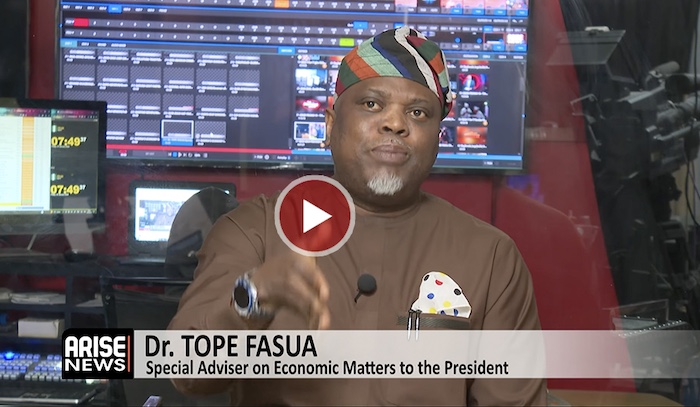
Small and Medium Enterprises (SMEs) are businesses with a small number of income, assets and employees, and are run by small entrepreneurs.
The coming days are going to be busy as South Africa hosts various leaders from different parts of the world for the G20 Summit. TymeBank says there is a way for small and medium enterprises (SMEs) to cash in on this busy time.
Miguel da Silva, Group Executive: Business Banking at TymeBank, says the G20 presidency has a concentrated sequence of high-profile events.
“The Think20 Summit on 13–14 November, followed by the Social and B20 Summits from 18 to 20 November, and concluding with the G20 Leaders’ Summit on 22–23 November, are bringing thousands of international delegates to South Africa.”
ALSO READ: Money Smart Week: Five tips for SMEs to prepare for setbacks
SMEs in hospitality
He adds that for SMEs in hospitality, accommodation, event management, catering, transport, and tourism, this represents revenue opportunities during a traditionally strong trading period.
“Beyond the immediate transactional benefits, these gatherings offer strategic networking opportunities and international visibility that could yield longer-term partnerships and export relationships,” says Da Silva.
“The B20 Summit specifically brings together business leaders and policymakers, creating a conducive environment for SMEs to engage with potential investors, partners, and customers.”
Final interest rate decision of 2025
The South African Reserve Bank’s Monetary Policy Committee is set to deliver its final interest rate decision for the year on 20 November.
Da Silva says having delivered rate cuts totalling 125 basis points over the past year, bringing the repo rate from 8.25% to 7.00% and the prime lending rate to 10.50%, the committee now faces a more complex decision-making environment given the new inflation target framework.
“The uptick in inflation from 3.3% in August to 3.4% in September creates modest pressure that may prompt caution from Governor Kganyago and the committee. The transition to a lower inflation target adds another dimension to deliberations, as does global economic uncertainty and exchange-rate volatility.
“For SMEs, the decision carries significant implications for working capital costs, expansion financing, and overall operational planning for 2026. Businesses should prepare contingency scenarios for both outcomes, recognising that the current cycle may be approaching its conclusion even if further modest cuts materialise.”
ALSO READ: Businesses put their faith in Madlanga commission
Black Friday demands heightened vigilance
Black Friday, on 28 November 2025, kicks off the peak retail trading period, with performance data from 2024 demonstrating the event’s economic significance.
He says retail sales were up nearly 20% in 2023, contributing to an estimated R88 billion boost to the broader economy.
“But it’s not all sunshine; the surge in transaction volumes also heralds a spike in scams and fraudulent activity, which, if left unchecked, can cause significant reputational damage.
“SMEs should do what they can to tighten fraud-prevention measures, ensure payment systems are secure, train staff to identify suspicious transactions, and protect customers throughout the purchasing process.”
Key data releases inform planning
Da Silva highlights that key economic indicators throughout the month provide essential guidance for strategic planning.
“The Consumer Price Index for October, released around 19–20 November, provides crucial inflation data immediately ahead of the MPC decision.
“The RMB/BER Business Confidence Index for Q4 2025, due around 26–28 November, is a good indicator of sentiment across key sectors. The Quarterly Labour Force Survey for Q3 2025, released on 12 November, showed a slight reduction in unemployment, down 1.3 percentage points from Q2 to 31.9%.”
ALSO READ: MTBPS: Small businesses need more than promises
MTBPS delivers inflation target shift and projects GDP uptick
Finance Minister Enoch Godongwana delivered the Medium-Term Budget Policy Statement (MTBPS) on Wednesday, announcing a significant shift in monetary policy alongside mixed news for micro-enterprises.
“The Minister unveiled a new inflation target of 3% with a one percentage point tolerance band. For SMEs, lower inflation should translate into reduced borrowing costs and improved real disposable income for customers over time.”
The Minister projected GDP growth of 1.2% for 2025, more than double 2024’s performance, strengthening to an average of 1.8% between 2026 and 2028, and announced that government debt will stabilise in 2025-26 at 77.9% of GDP, the first stabilisation since the 2008 financial crisis.
“Substantial infrastructure investment is planned, and capital expenditure emerges as the fastest-growing spending category at 7.5% over the medium term.
“The new Procurement Payments Dashboard, launched with the MTBPS, provides greater transparency into government procurement, potentially creating opportunities for SMEs to better understand and access public-sector contracts.”



